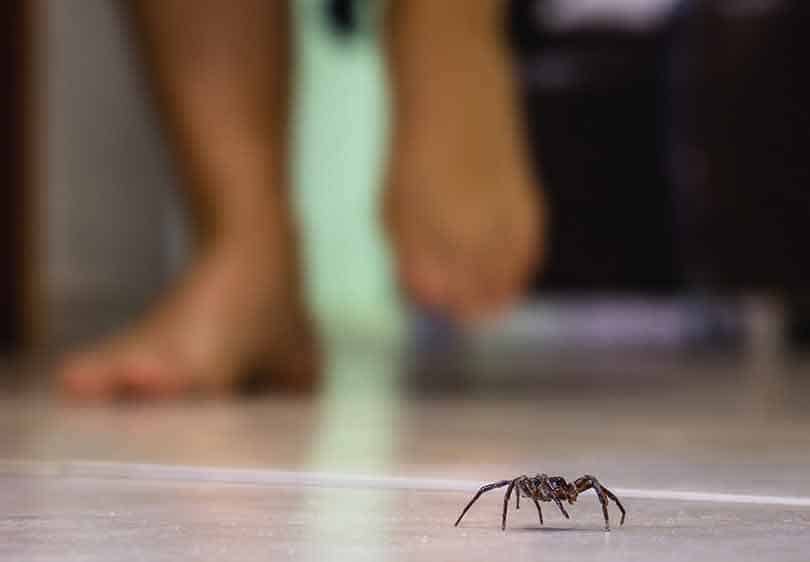Finding the Various Kinds Of Bug Control Techniques and Their Applications
Insect control is an important aspect of preserving a healthy and risk-free environment, whether it be in residential, business, or agricultural settings. From chemical methods that target specific parasites to biological strategies that harness natural killers, the realm of insect control is huge and diverse.
Chemical Parasite Control Techniques
Chemical bug control techniques are commonly used in agriculture and parasite management to effectively eliminate or control pest invasions. These methods include using chemical materials, such as insecticides, chemicals, and herbicides, to decrease or remove pest populaces that position a danger to plants, animals, or human wellness. Pesticides, as an example, target particular bugs like rats, weeds, or bugs, disrupting their life cycles or causing straight injury upon call. Herbicides are especially designed to control unwanted plant life that takes on crops for resources and nutrients. Insecticides, on the other hand, are utilized to deal with insect bugs that can damage crops and transmit diseases.
While chemical insect control methods can be extremely effective in managing pest populaces, they additionally elevate worries regarding potential ecological and health and wellness threats. Incorrect use or overuse of chemical pesticides can lead to pollution of dirt, water, and air, harming non-target microorganisms and triggering long-lasting environmental damages. Furthermore, repeated direct exposure to chemical residues might present health and wellness threats to farmworkers, customers, and wildlife. Therefore, it is vital to follow safety and security guidelines, make use of integrated pest monitoring strategies, and take into consideration alternative approaches to reduce the adverse effects of chemical parasite control methods.
Organic Parasite Control Techniques
 Organic parasite control approaches use living organisms to lower and manage insect populations in a eco pleasant and lasting way. This strategy involves presenting all-natural killers, bloodsuckers, or microorganisms to control bugs without the requirement for artificial chemicals. One common approach is the launch of ladybugs to fight aphids in gardens, as ladybugs are natural predators of these damaging pests. Another instance is using Bacillus thuringiensis (Bt), a microorganism that generates toxic substances deadly to specific insect larvae, to manage caterpillars and mosquitoes.
Organic parasite control approaches use living organisms to lower and manage insect populations in a eco pleasant and lasting way. This strategy involves presenting all-natural killers, bloodsuckers, or microorganisms to control bugs without the requirement for artificial chemicals. One common approach is the launch of ladybugs to fight aphids in gardens, as ladybugs are natural predators of these damaging pests. Another instance is using Bacillus thuringiensis (Bt), a microorganism that generates toxic substances deadly to specific insect larvae, to manage caterpillars and mosquitoes. 
Biological insect control methods offer numerous benefits over chemical methods. Generally, organic parasite control methods offer a efficient and natural choice to traditional chemical therapies, advertising a well balanced ecosystem and healthier atmospheres.
Physical Insect Control Approaches
Making use of physical techniques to manage bugs includes using mechanical or non-chemical ways to alleviate and take care of parasite invasions efficiently. These methods depend on physical barriers, traps, and various other methods to discourage and remove parasites without making use of harmful chemicals. One typical physical bug control method is the installment of screens, internet, or fences to obstruct insects from going into specific areas. This technique is especially effective in staying out pests and small animals from buildings or yards.
Another physical technique is making use of traps, such as breeze traps for rats or pheromone traps for insects. These traps goal to record pests without posing any danger to humans or the atmosphere. Furthermore, physical control methods can consist of strategies like handpicking bugs off plants, utilizing vacuum cleaner devices to eliminate pests, or using heat therapies to eliminate bed bugs and other pests in infested areas.
Integrated Pest Administration Strategies
Implementing a holistic technique to pest administration, Integrated Bug Monitoring (IPM) methods aim to combine numerous effective techniques to control and avoid pest invasions while reducing ecological impact and making sure sustainable parasite control techniques. IPM involves Extra resources the combination of multiple control approaches such as organic control, social techniques, mechanical control, and the mindful use chemicals.

Moreover, IPM highlights the value of monitoring and assessing pest populaces to figure out the most appropriate control techniques. By carrying out IPM techniques, bug control initiatives come to be much more targeted and reliable, decreasing the threats connected with extreme chemical usage and promoting long-lasting insect administration services.
All-natural and Organic Parasite Control Options

One prominent natural insect control approach is neem oil, acquired from the seeds of the neem tree, which functions as a why not check here repellent and interrupts the development and development of insects. Diatomaceous earth, an all-natural silica-based powder, is another efficient organic parasite control option that works by dehydrating bugs upon call. By incorporating natural and natural parasite control options right into parasite management methods, people can properly control bugs while decreasing damage to the setting and promoting lasting methods.
Final Thought
Finally, numerous pest control methods such as chemical, organic, physical, incorporated pest management, and natural choices are readily available for efficiently handling parasite problems. Each method has its own advantages and applications depending upon the sort of bug and the environment. By comprehending the different sorts of bug control strategies and their applications, individuals can make educated decisions on the most suitable method to manage bugs and shield their building.
Chemical parasite control strategies are extensively made learn this here now use of in farming and bug administration to properly eradicate or regulate pest problems - Orem Pest Control. All-natural bug control techniques involve using biological control agents, such as bloodsuckers or predators, to manage pest populaces. By incorporating organic and natural pest control alternatives right into parasite monitoring approaches, people can efficiently control parasites while decreasing damage to the atmosphere and promoting lasting methods
In final thought, various parasite control strategies such as chemical, organic, physical, incorporated insect management, and all-natural choices are offered for effectively taking care of parasite invasions. By understanding the various types of bug control strategies and their applications, individuals can make educated choices on the most proper approach to regulate pests and shield their residential or commercial property.